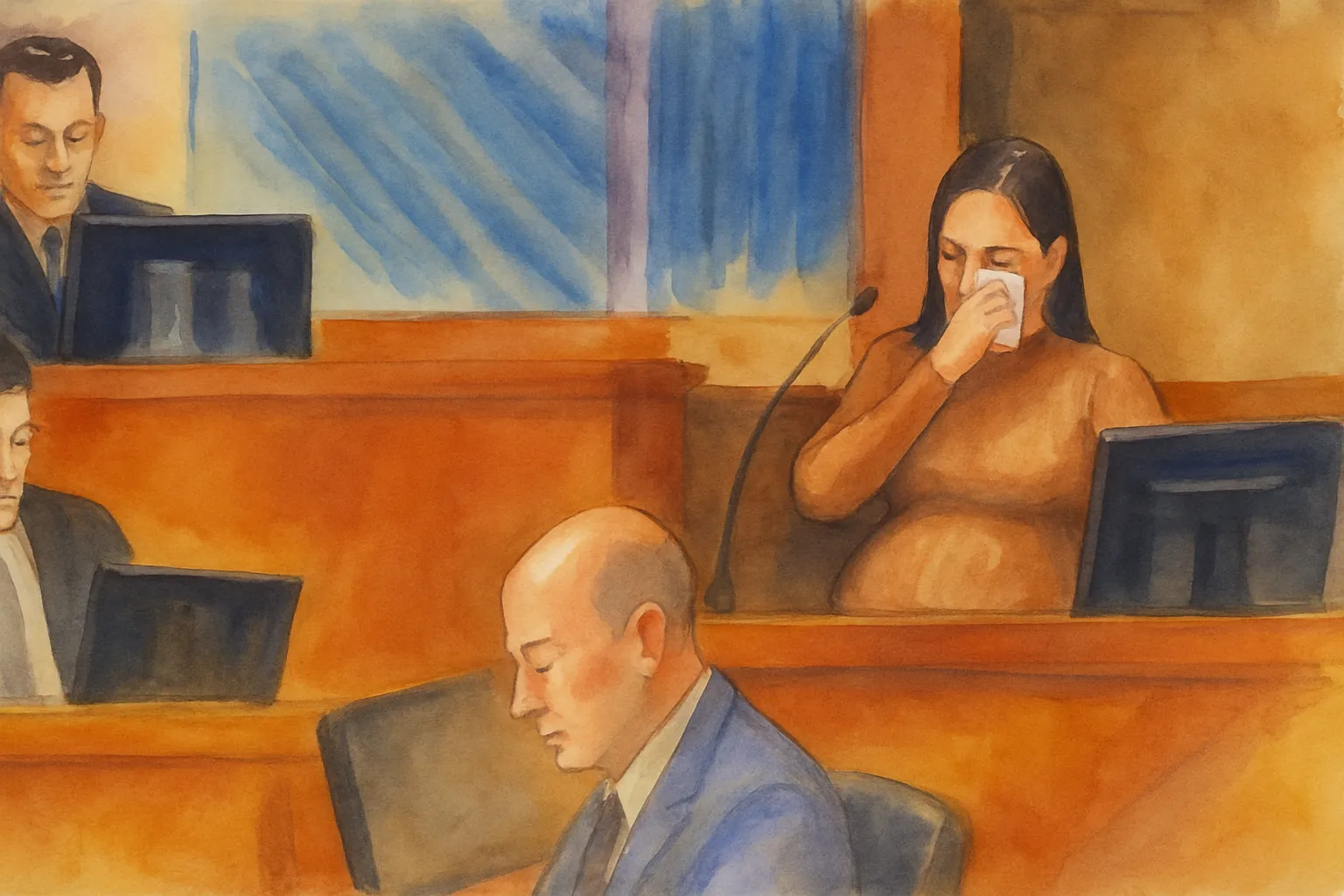
好莱坞潜在的衰落:洛杉矶业内人士表示担忧
May 3rd, 2025
好莱坞潜在的衰落:洛杉矶业内人士表示担忧
🇨🇳 中文
Sign Up or Log In to Continue Reading
Create an account or log in to unlock unlimited access!
🇺🇸 English
The possibility of Los Angeles mirroring Detroit, a city whose initial prosperity, founded on a single industry, waned dramatically following that industry's departure, underscored a significant town hall meeting for the film and television sectors. This gathering addressed the severe decline in production in Hollywood and California, alongside efforts to persuade the state government to enhance its tax incentives for entertainment production.
The event on Monday evening examined in depth a subsequent phase of the entertainment production process that is also currently facing significant challenges: musical composition and postproduction.
It is no exaggeration to state that, without intervention, California's film and television sector risks mirroring the decline of Detroit's auto industry, according to Noelle Stehman, a spokesperson for the "Stay in LA” initiative, who addressed the gathering.
The plan to increase tax incentives is at an important point in the lawmaking process. California State Senator Ben Allen and State Assemblyman Rick Zbur were there to try and get the votes needed. A big problem is that some politicians think the incentives are just giving money to movie studios and media companies. Allen completely disagrees with this idea.
The studios are indifferent to their location of operation; they are prepared to undertake the work anywhere, he conveyed to the capacity audience at Evergreen Studios in Burbank, formerly a cinema. They continue to produce shows. What many of our counterparts fail to grasp is that this is fundamentally an issue impacting the middle class. The studio executives will nonetheless retire to their homes in Bel-Air regardless of the circumstances.
"This is not a tax giveaway," Zbur concurred, asserting, "This is fundamentally a job program designed to stabilise people in their homes and prevent them from becoming unemployed. The financial implications of inaction would be significantly greater than the cost of these tax credits."
He went on to say, "I ask my colleagues this: Why do you think all these other governments are starting these very strong tax programs? It's because they pay for themselves, and because these jobs are jobs that people want. So why are we just watching while people are taking the best jobs that we have created here?"
The event attracted a diverse group of individuals from the production, postproduction, and music and scoring sectors, including Recording Academy CEO Harvey Mason Jr., California Film Commission executive director Colleen Bell, and Philip Sokoloski from FilmLA, who were present to discuss the increasing departure of postproduction and screen music work from Los Angeles and its implications for both businesses and employees.
This event took place only hours after FilmLA had disclosed its most recent on-location production figures, which indicated a 22 percent decrease in filming days during the first quarter of 2025 compared to the corresponding timeframe in the previous year.
"These roles have not disappeared; they have relocated," stated Alex LoVerde, CEO of ProdPro, highlighting the 26 per cent decline in United States production since 2022, a shift that has benefited countries like Australia, which has experienced a 14 per cent increase.
The panels on post-production and music highlighted the challenges facing these artistic communities. ADR supervisor Bobbi Banks described working only three months out of the last eighteen, even hosting a mentee during part of that time. She questioned the audience about advising her mentee, who aspired to relocate to Los Angeles for their career. Visual effects artist Efram Potelle shared the difficult discussions he has had with his family regarding financial matters.
The discussion about music and scoring was even more serious. Music contractors and producers Peter Rotter and Jasper Randall, from Encompass Music Partners which hosted the event, showed how much less recording time is being booked at scoring studios in L.A. In 2022, during the busiest time for TV, they had 127 booked days, but this year so far, it's only 11. They also said that scoring work costs 66% less in Vienna, Austria, and 90% less in Bratislava, Slovakia.
Supervising sound editor Karen Baker Landers was among those advocating for a specific provision in the incentive for postproduction, noting that other states like New York and Louisiana, as well as countries such as Australia and Spain, have similar carveouts, positioning them as significant attractions for production.
Even if movies were filmed in other places, they used to always return to California for post-production, but that has stopped happening for a while now," said the person who won two Oscars. "Things like visual effects, sound, editing, and music have been moving away from California because of these tax benefits. This has caused the state to lose many jobs, not just in the movie business, but also in the companies that help support us.
State policymakers know the situation is serious. Governor Gavin Newsom wants to more than double the limit on the state's film and television incentives program. Lawmakers have also suggested two bills to make the current system bigger and better. If these bills pass, the incentive could go up to 35 percent. Also, shorter TV shows, animated projects, and some unscripted shows could get the credit.
According to the coalition that organized Monday's event, those proposals might contribute to a solution, but they do not represent the complete answer. The group's mission statement asserts, "We recognize that revitalizing L.A.'s entertainment economy in a sustainable manner necessitates further effort beyond mere tax incentives."
The event unfolded as part of a concerted effort to repatriate production work to Los Angeles, commencing with a rally on April 6th and culminating in a missive from Representative Laura Friedman and unions urging studios and streamers to augment local production.
However, the industry must also seek answers from its own ranks; during the town hall meeting, Senator Allen urged unions and the artistic community to converse, stating that "difficult discussions are necessary within labour negotiations." Stephanie O'Keefe, president of the music union AFM, affirmed this necessity from the audience and expressed her organization's readiness to engage in such dialogue.
Landers asserted, "I firmly believe the global community is observing California's approach to these incentives; they recognise that if we achieve success, California will once again be a formidable contender."
May 3rd, 2025
Trending Articles

叶不料现身吹牛老爹审判现场遭拒:一场公众闹剧
Ye's Unexpected Appearance at Diddy's Trial Denied: A Public Spectacle
叶不料现身吹牛老爹审判现场遭拒:一场公众闹剧
Ye's Unexpected Appearance at Diddy's Trial Denied: A Public Spectacle

防弹少年团智旻与柾国退伍,欢声雷动,万众欢腾。
BTS' Jimin and Jung Kook Emerge from Military Service to Jubilant Fanfare
防弹少年团智旻与柾国退伍,欢声雷动,万众欢腾。
BTS' Jimin and Jung Kook Emerge from Military Service to Jubilant Fanfare

泰国佳丽奥帕·苏查塔·创斯里荣膺2025年世界小姐桂冠。
Thai Beauty Opal Suchata Chuangsri Claims Miss World 2025 Title
泰国佳丽奥帕·苏查塔·创斯里荣膺2025年世界小姐桂冠。
Thai Beauty Opal Suchata Chuangsri Claims Miss World 2025 Title

克里斯·布朗因涉嫌2023年伦敦夜总会袭击事件面临英国指控。
Chris Brown Faces UK Charges Over Alleged 2023 London Nightclub Assault
克里斯·布朗因涉嫌2023年伦敦夜总会袭击事件面临英国指控。
Chris Brown Faces UK Charges Over Alleged 2023 London Nightclub Assault

卡西在“吹牛老爹”肖恩·科姆斯性交易案审判中直面令人痛心的细节。
Cassie Confronts Harrowing Details in 'Diddy' Combs Sex Trafficking Trial
卡西在“吹牛老爹”肖恩·科姆斯性交易案审判中直面令人痛心的细节。
Cassie Confronts Harrowing Details in 'Diddy' Combs Sex Trafficking Trial

男子涉嫌撞毁詹妮弗·安妮斯顿家大门,被控跟踪和破坏罪。
Man Charged with Stalking and Vandalism After Allegedly Crashing into Jennifer Aniston's Gate
男子涉嫌撞毁詹妮弗·安妮斯顿家大门,被控跟踪和破坏罪。
Man Charged with Stalking and Vandalism After Allegedly Crashing into Jennifer Aniston's Gate

法官因律师对检察官发表种族歧视言论而予以训斥
Judge Reprimands Lawyer for Racial Remark Towards Prosecutors
法官因律师对检察官发表种族歧视言论而予以训斥
Judge Reprimands Lawyer for Racial Remark Towards Prosecutors

模特在温斯坦重审中作证,之前的陪审团对此证词不知情
Model Testifies in Weinstein Retrial, Previous Jury Unaware of Account
模特在温斯坦重审中作证,之前的陪审团对此证词不知情
Model Testifies in Weinstein Retrial, Previous Jury Unaware of Account

比莉·艾利什谈童年时期对她名字的厌恶
Billie Eilish on Hating Her Name During Childhood
比莉·艾利什谈童年时期对她名字的厌恶
Billie Eilish on Hating Her Name During Childhood
Sign Up or Log In
Create an account or log in to continue reading and join the Lingo Times community!